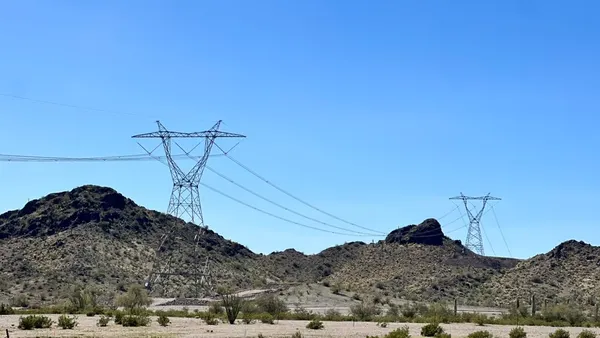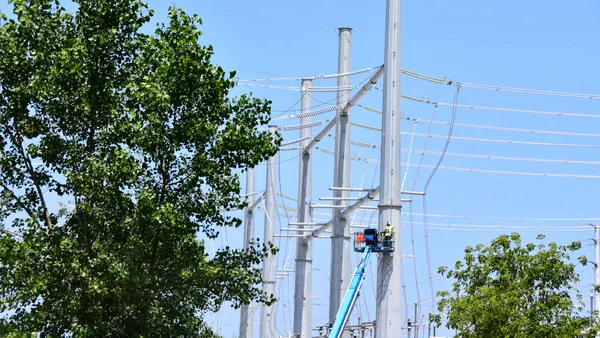Dive Brief:
- New Jersey regulators on Thursday approved Public Service Electric & Gas' plan to install 2.3 million smart meters across its territory, creating a more modernized distribution system that will allow for real-time customer communications and help to lower the utility's operating and maintenance (O&M) costs.
- PSE&G says total expenditures for the advanced metering infrastructure (AMI) program are approximately $778 million, including $707 in capital investment and $71 million in O&M expenses.
- Upgrading electric meters is a key step in PSE&G's plan to create an "energy cloud" that can provide near real-time outage detection, help customers use energy more efficiently, and integrate with new in-home technologies like Amazon's Alexa.
Dive Insight:
The New Jersey Board of Public Utilities on Thursday unanimously approved PSE&G's smart meter rollout, while also making clear that work remains to ensure the investment returns its full potential.
The decision requires a stakeholder process to discuss data access, and calls for the utility to educate customers on the benefits of the new meters.
"If we are going to achieve the full benefits of AMI, data access is a huge piece of that," Commissioner Dianne Solomon said before the vote. The data access discussion "is going to be very important to the board and all those interested in seeing that AMI reaches its full potential for the ratepayers and not just the utility."
The decision also addresses customers that might choose to opt-out of the new meter program. Customers who choose to keep using conventional meters will be subject to a $12 monthly meter reading fee. Those fees will be subject to review in an upcoming rate proceeding.
"We need to insist on proper customer education," Commissioner Upendra Chivukula said at the meeting.
PSE&G says it plans to convert all 2.3 million existing electric customers to smart meters by the end of 2024.
"This is a vital step toward achieving a smarter and cleaner energy future for New Jersey," PSE&G President Dave Daly said in a statement. "Smart meters provide the real-time communications necessary to better serve our customers and will provide electric customers with valuable information about their energy consumption."
The meters and the supporting communications network can help expedite electric service restorations following severe weather, said Daly, and can "help customers increase their home energy savings, and improve service quality."
PSE&G originally proposed the smart meter program in 2018, laying out a plan to swap out 2.2 million meters. The utility's customer base has grown since then, a spokesperson said, raising the number of meter replacements to 2.3 million.
"Over the life of the program, the project pays for itself with lower O&M," spokesperson Lauren Ugorji said in an email, pointing to fewer meter readings, fewer calls to address estimated bills, and the ability to reconnect accounts remotely rather than requiring utility visits.
"Our investment will begin to be recovered in our next rate case," Ugorji said. "In addition, customers will have more information to better manage their energy usage and/or could take advantage of time of use meter rates and shift their usage (both of which will save customers money)."














